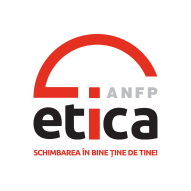|
If you are having trouble viewing this email, open it with your internet browser,
download the PDF version
or contact us.
|
 |
| #35 - May 2021 |
| PDF version - Manage your subscription - Search - Archives |

|
|
vision RH is a newsletter published by the French Directorate General for Administration and the Civil Service (DGAFP). It draws on information sources and reports issued by public administrations, the private sector, international organisations and the press, in several different languages. It aims to provide a broad view of current human resources and civil service initiatives.
|
|

|

|
| Apprenticeship and work-study training, the new keys to success in the administration | |||||
|
More and more young people are opting to enter working life while continuing their training. Whether in a traditional apprenticeship or a work-study programme, the aim is to put theoretical knowledge into practice with an employer and hopefully get hired. These options are already quite widespread in the private sector, but the public service lags far behind. Aggressive targets have been set (1) and a dedicated scholarship initiative (PASS) should help bridge the gap. A study carried out at European level shows that - although there are still real differences between the various countries - the trend is indeed increasing. Germany, which has often been cited as an example over several decades, offers these arrangements on a massive scale in the public sector, for a wide range of administrative and technical jobs. The average length is three years for an apprenticeship after a certificate or baccalaureate and two years for a higher education work-study programme. They still account for the majority of hires and often lead to a contract or even permanent civil service status. Along the same lines, Switzerland provides training in a wide range of professions within the departments of its federal administration, with a particular focus on those where candidates are in short supply. Experienced civil servants, accompanied by HR colleagues, regularly visit educational establishments to attract candidates. In another context, since 2015 the United Kingdom has also opted to promote this scheme. The Civil Service now offers a wide range of tracks for students, from the end of secondary school to Masters level. The government wants to profoundly change the image of apprenticeships, which should no longer be considered as a fall-back option for those who are experiencing difficulties in their education. The perception that the model is better suited to the private sector can sometimes be reversed. After the financial crisis that severely affected Greece, the public sector now accounts for two-thirds of apprenticeships. Encouraging departments to take part in this initiative is still an uphill battle, especially as they do not always see the benefits. In Norway, for example, in 2016 the government mandated that each administrative entity have at least one apprentice. In return, public procurements over 150,000 euros can only be made from companies that themselves train apprentices. But the difficulty often lies in the perceived gap between the training provided and the duties performed by the administration. In Israel, a specific programme has been designed to attract future managers. Combining, over an 18-month period, academic knowledge (validated by a university diploma) with practical experience in the workplace ensures that participants who successfully complete the programme and agree to commit themselves for a minimum of four years will be hired. Taking advantage of apprenticeships to develop skills while already in a job is an effective way to support a professional transition. This is the objective of Qualifica AP in Portugal. Thanks to a network of approved centres, staff can take advantage of a wide range of certification and diploma courses, as well as suggestions for courses to enhance their career prospects. In response to the combined challenges of generational change and recovery from the health crisis, the United States recently initiated a public sector learning consortium. Led by the Council of State Governments and the Urban Institute, it promotes best practices implemented locally (in California, Kentucky, Massachusetts and Ohio).
|
|||||
|
|||||
|
|
|||||

|
|||||

|

|

|
| Europe: support programme for the EU's 27 national administrations | |||||
|
Because public administrations will play a major role in the recovery in each Member State, they must be supported in their efforts to transform. The Commissioner for Cohesion and Reforms has presented a document to this effect. It details the main lines of a programme which lists the various resources and good practices and is intended to enable public services to be even more flexible and resilient. |
|||||
|
|||||
|
|
|||||

|
|||||
| Australia: A framework to promote public sector mobility | |||||
|
This is one of the cornerstones of the government's HR strategy. To eliminate any remaining impediments to temporary mobility, the new framework identifies three priorities: providing a quick response to specific needs, supplying expertise to a project team or individual skill-building. Departments will be assessed on their ability to promote these measures and to support staff. |
|||||
|
|||||
|
|
|||||

|
|||||
| Germany: environmental criteria for the pension fund | |||||
|
As part of its commitment to carbon neutrality, the Federal Administration is introducing environmental, ethical and social criteria into investments that contribute in part to financing pensions. The country has opted for a hybrid model (budgetary reserve and capital cover) to ensure the sustainability of the entire pension system. « With climate protection as the top priority for our investments, we take responsibility for future generations »
|
|||||
|
|||||
|
|
|||||

|
|||||

|

|
| United Kingdom: Career Matcher helps applicants find their career path | |||||
|
Many job seekers are interested in, and even motivated to enter the public sector. To help those who are struggling to find the most suitable job or the one that best suits them, the Civil Service has developed a new interactive module on its careers website to help guide this choice - and make concrete suggestions - by asking a series of simple, specific questions. |
|||||
|
|||||
|
|
|||||

|
|||||
| France: promoting access to training for those who receive the least training | |||||
|
Article 59 of the Act of 6 August 2019 contains an order designed to facilitate training for the lowest-level members of staff (Category C). This will notably concern those employees who are most at risk of becoming unfit to perform their duties, due to their working conditions. The conditions applicable to leave for professional training (level of compensation and duration of use) will be improved. |
|||||
|
|||||
|
|
|||||

|
|||||
| United States: Launch of the Federal Workforce Competency Initiative | |||||
|
Modelling and structuring skills in the vast arena of federal public employment is the new task of the U.S. Office of Personnel Management (OPM). To achieve this, a survey will be sent to a random sample of employees and managers representing nearly 350 professional categories. Since 2011, a regulation has required that employment practices be based on an objective analysis of each position. « The initiative will provide up-to-date data for a wide variety of human capital-related activities: recruitment, training, career development »
|
|||||
|
|||||
|
|
|||||

|
|||||

|

|
| Spain: new regulations on preventing conflicts of interest | |||||
|
With the emergence of new forms of income (especially related to the development of the digital economy), the government wants to modify the regulations applicable to public officials to continue to prevent all types of conflicts of interest. It plans to change the list of activities that are incompatible with employment. At the same time, a national consultation is being launched to gather citizens' opinions. |
|||||
|
|||||
|
|
|||||

|
|||||
| Estonia: excellence at the heart of the senior civil service | |||||
|
Whether they are heads of department, directors or secretaries-general, they make up the pool of senior civil servants managed by the Centre of Excellence, which reports to the Prime Minister. This dedicated team is responsible for their recruitment, monitoring their training and career paths, and evaluating them. The main objective is to achieve a better homogeneity of profiles, but also to better contribute to knowledge transfer. |
|||||
|
|||||
|
|
|||||

|
|||||
| Belgium: survey on the use of AI in public administration | |||||
|
AI is gradually making its appearance in most new management tools. But its use also raises questions. The Belgian federal administration is conducting a survey among its staff in order to understand the level of deployment of this technology in the various departments and any remaining questions or reservations. Based on the results, strategic recommendations will be formulated. « Closing the gap is essential to harness the full potential of AI. Administrations play a crucial role in this regard »
|
|||||
|
|||||
|
|
|||||

|
|||||

|

|
| Italy: a transitional regime and long-term flexible working | |||||
|
Getting back to a certain normality while building on the benefits of the organisational changes brought about by the crisis is a real challenge. The government is opting for a six-month transition phase during which the minimum threshold of 50% of the workforce teleworking is no longer compulsory. In return, collective agreements - which are to be renewed before the end of the year - will have to introduce flexible working arrangements. |
|||||
|
|||||
|
|
|||||

|
|||||
| Canada: talks to improve the Public Service Health Care Plan | |||||
|
Unions and management have begun negotiations to update and strengthen the public service health care plan (contracted out to a private insurer), which provides a wide range of products and services to the majority of federal public servants. The demands focus on taking account of medical progress, the use of new therapies and the increase in the cost of healthcare. |
|||||
|
|||||
|
|
|||||

|
|||||
| Portugal: national study on psychosocial risks | |||||
|
Faced with a phenomenon that is on the increase, according to the National Order of Psychologists, the administration is reacting by conducting a first large-scale study. A total of 77 bodies - representing every government department - are participating. They are committed to seeking direct knowledge, even anonymously, of the psychosocial risks existing in their organisation in order to improve the response to the needs of staff in terms of safety, health and well-being. « Psychosocial risks are currently one of the greatest threats to the physical and mental health of workers »
|
|||||
|
|||||
|
|
|||||

|
|||||

|

|
| Danone looks to the future by moving towards a "mission-driven" company | |||||
|
A world in which companies that have a social, societal and environmental impact are valued – such is the goal of B Corporation (1) certification, which was initiated in the United States and launched in France in 2015. Danone is one of the first French companies to have chosen to progressively commit to this approach. Among the five pillars in the guidelines, which are subject to self-assessment and then audited by an independent, non-profit organisation, is the "employees" pillar. There are numerous questions asked. They cover employee benefits (working hours, remuneration, profit sharing) and career development as well as well-being, commitment and motivation. This is an ambitious objective because every one of the company's activities (whether they concern the core business or cross-cutting activities) is scrutinised. As a forerunner, Danone wanted to help define a consistent and achievable certification process. This approach is fully in line with the new "one person, one vote, one share" governance model launched in 2018. Each member of staff:
1 Several provisions of the Act of 6 August 2019 are intended to facilitate the development of apprenticeships within the three branches of the civil service. |
|||||
|
|||||
|
|
|||||

|
|||||

|

|
| Practical implementation of a forward-looking code of ethics in the Romanian public sector | |||||
|
Although the Romanian government has, for some years now, worked to improve the situation by setting up independent institutions with extended powers, it decided to bolster the ethics of its administration, both to ensure transparent public action and to increase the trust placed in it by Romanian citizens. As part of this, the Etica project (acronym for "ethics, transparency and integrity in the conduct of the administration") was launched. It is one of the components of the POCA programme (1) and is coordinated by the National Agency for Public Officials, which is responsible for HR. At the end of 2019, an ordinance clarified and completed the existing provisions on ethics, amending the administrative code – the equivalent of a status – which is applicable without distinction to all government employees, whether permanent or contractual. .
The fundamental obligations of impartiality, loyalty and neutrality are given particular attention in the new code, but emphasis has been placed on managerial responsibility (Art. 449). Managers are the "guarantors of equal opportunities and treatment with regard to professional development". They must ensure a fair and equitable distribution of tasks. The initiative also created the role of "ethics counsellor". This important role is the cornerstone of the entire structure. The conditions of appointment, exercise and assessment are enshrined in a prescriptive act:
In time, there will be some 700 ethics counsellors throughout Romania.
|
|||||
|
|||||
|
|
|||||

|
|||||

|
|
Share
|
||||
|
||||
| SUBSCRIBE - UPDATE YOUR SUBSCRIPTION - ARCHIVES - RSS - UNSUBSCRIBE |
|
French Directorate-General for Administration and the Civil Service (DGAFP)
Publication Manager: Nathalie COLIN Managing Editor: Nathalie GREEN Editor-in-chief and Autor: Jean-François ADRIAN Layout and graphic design: Jean-François ADRIAN and Aphania. The texts of the publication do not reflect the point of view of the DGAFP
In accordance to the French Act n°78-17 of 6 January 1978 on information technology, data files and civil liberties and to the european General Data Protection Regulation (GDPR), your personal data is stored securely and you are entitled to access, correct and delete them. To do so, you should send an e-mail to (contact-visionrh@kiosque.bercy.gouv.fr) or write to DGAFP: 139, rue de Bercy - 75012 Paris; France.
Reproduction is authorized with mention of the source © DGAFP 2021 / N° ISSN: 2606-7528. |
|
|






